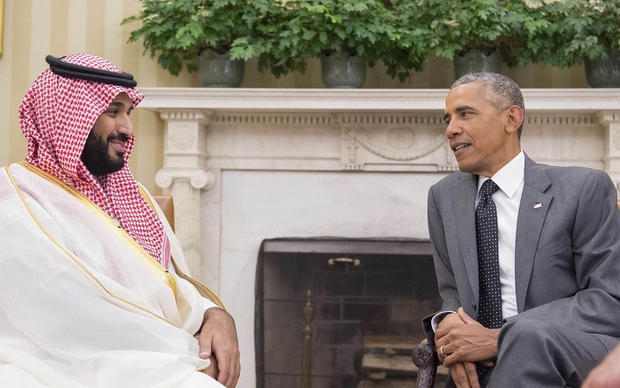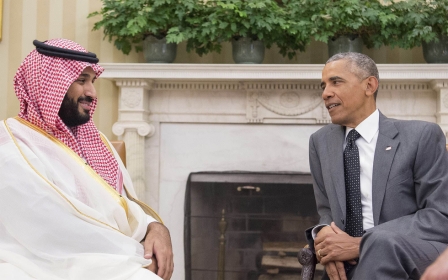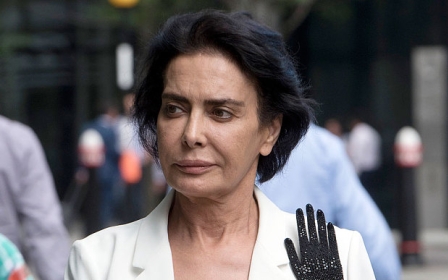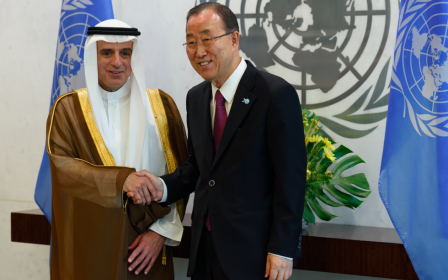Saudi Arabia’s crown prince is seriously ill: Reports
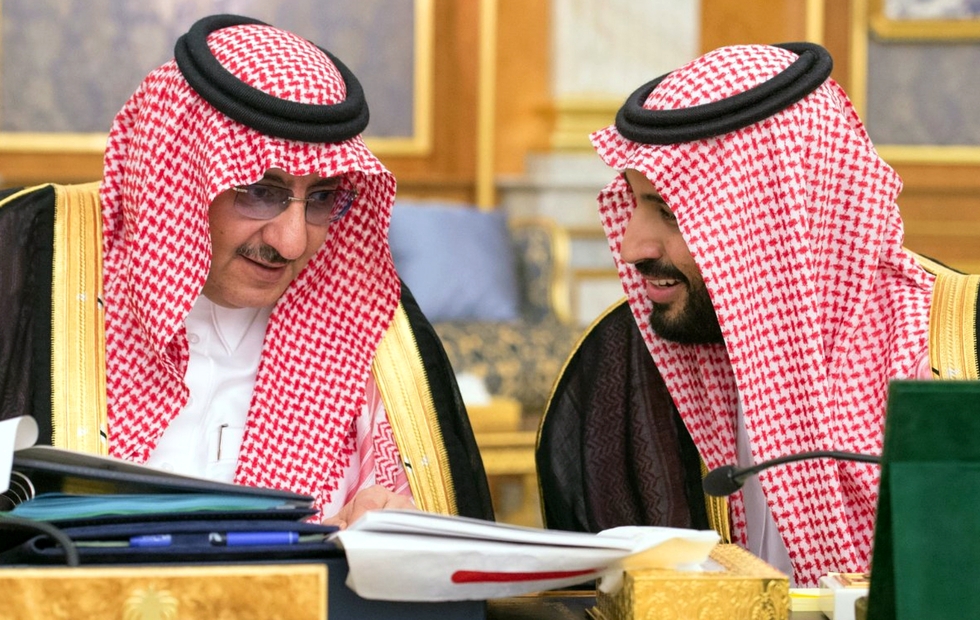
Claims that Saudi Arabia’s crown prince is seriously ill have emerged after the visit of Deputy Crown Prince Mohammed bin Salman to the White House this week.
Bruce Riedel, a former national intelligence officer and a member of US President Barack Obama's transition team, told NBC News on Friday that 30-year-old bin Salman was visiting the US because his father King Salman and Prince Mohammed bin Nayef, second in line to the throne, are both seriously ill.
"We've put a lot of markers down on Mohammed bin Nayef. It's the smart move to do the same with bin Salman. It's an opportunity to get to know him,” Riedel said.
Bin Nayef, bin Salman's cousin, has long been seen as a steady pair of hands and, unlike some vying for power in the kingdom, not a long-term threat because he has no children of his own.
He has also traditionally been viewed as the US favourite and has cooperated closely with Washington on security and counter-terrorism issues for years, but he has increasingly kept a low profile, with speculation running rife about why.
A well-informed Saudi source told Middle East Eye on Saturday that 56-year-old bin Nayef was physically fine and recently went on a hunting trip to Algeria.
Instead, the source said, bin Salman's trip was “designed to make him US’s number one Saudi ally and to push [bin Nayef] out of the scene”.
Simon Henderson of the Washington Institute for Near East Policy told AFP that bin Salman is "notionally number three in the hierarchy, but effectively he's number one" because the 80-year-old king prefers that his son take over the kingdom.
A Bahraini-based source also said that the trip was probably part of a longer-term plan to bolster the young prince’s international reputation and that it is widely believed he will be made crown prince and heir apparent in the not too distant future.
The trip came at a key time, with the long-time allies locking horns over Washington’s growing closeness with regional arch-rival Iran and the US refusal to intervene militarily against Syrian President Bashar al-Assad.
It also came a month after the US Senate passed a bill that would allow victims or the families of those killed in the 9/11 attacks on the US to sue Saudi Arabia over its alleged support of terrorism. Obama has threatened to veto the bill should it appear on his desk.
Power prince
Bin Salman has been awarded a staggering amount of power since he was named deputy crown prince last April. He also serves as the defence minister, heading up the kingdom’s war in Yemen and Syria policy, and is pushing through ambitious economic reforms that aim to privatise part of the national oil giant Aramco and lessen Riyadh’s dependence on oil.
According to the Saudi source, bin Salman has secretly carved out a plan to severely curb the influence of Wahhabism, the strict interpretation of Islam followed in Saudi Arabia, by arresting clerics and shutting down institutions.
A Saudi expert who asked not to be identified told NBC that Riyadh was at such a critical juncture that either "it's him [bin Salman] or it's ISIS [the Islamic State group]."
By official accounts, his Washington trip was a success, despite eyebrows being raised about bin Salman meeting with Obama, a rare honour usually reserved for heads of state.
Even as bin Salman landed in Washington, officials had yet to confirm if the prince would get a one-on-one. But on Friday, the two spoke together in the Oval Office, the media in tow.
"The meetings were very, very positive. I believe there was a commonality in terms of visions and views," said Saudi Foreign Minister Adel al-Jubeir.
There continues to be a great deal of uncertainty about whether the young deputy crown prince can deliver.
At the end of last year, the BND, the German intelligence agency, published a rare memo criticising Saudi Arabia for “an impulsive policy of intervention” in Yemen, as well as the kingdom's support for rebels in Syria, portraying bin Salman as rash and impulsive.
The German government criticised the BND for the comments, but this has not stopped some analysts from wondering if bin Salman could be “the most dangerous man in the world”.
In general, bin Salman’s youth and policies have proven popular with the kingdom’s young population, but pockets of resentment about the impact of promised privatisation remain as do powerful enemies resentful of the prince’s growing dominance.
Ahmed Tuwaijari, a former member of the kingdom’s consultative assembly, was recorded as saying that the position of deputy crown prince violates Saudi law, the New Khalij website reported on Saturday.
He fell short of specifically criticising bin Salman in the undated recording, but his comments could suggest there is growing tension in Saudi’s ruling class about the young prince's meteoric rise.
According to New Khalif, Tuwaijari said that there were two ways to create a ruling body in a country – a real way which is “managed well and results in the real expression of society” and a fake way “which does not represent reality and tries to justify everything for the ruler and whoever is with him”.
- Additional reporting by Rori Donaghy and Dania Akkad
This article is available in French on Middle East Eye French edition.
Middle East Eye propose une couverture et une analyse indépendantes et incomparables du Moyen-Orient, de l’Afrique du Nord et d’autres régions du monde. Pour en savoir plus sur la reprise de ce contenu et les frais qui s’appliquent, veuillez remplir ce formulaire [en anglais]. Pour en savoir plus sur MEE, cliquez ici [en anglais].


